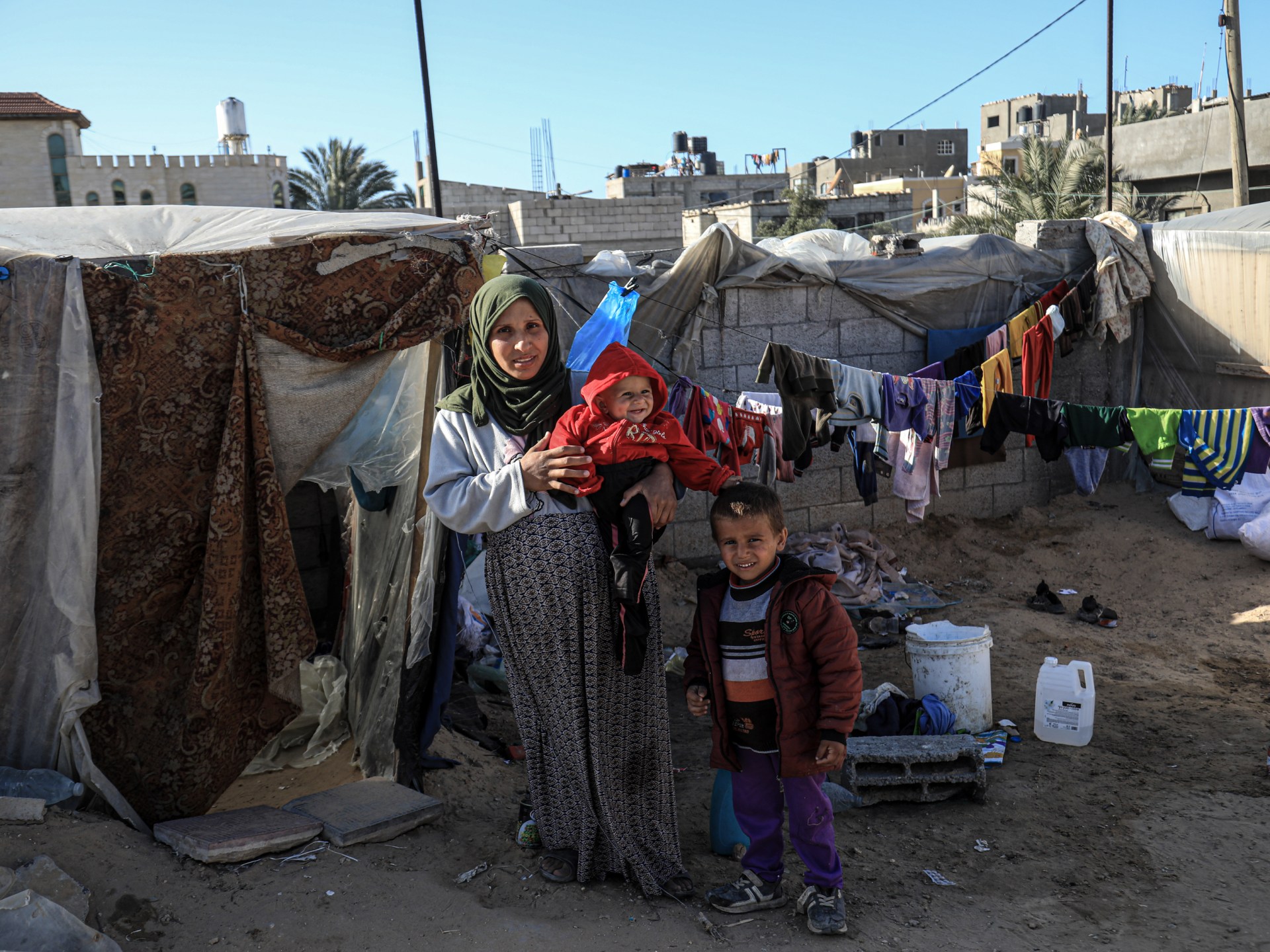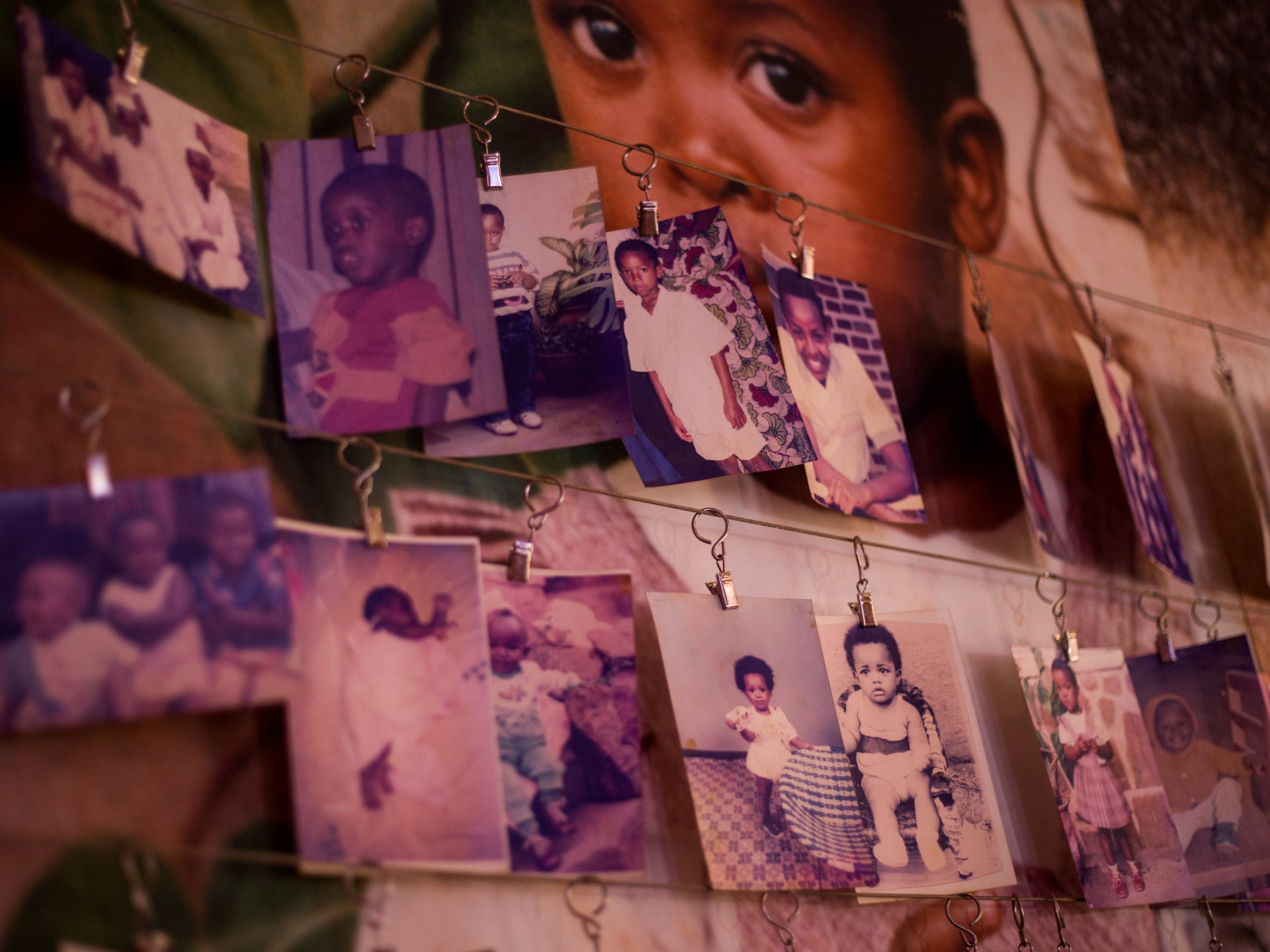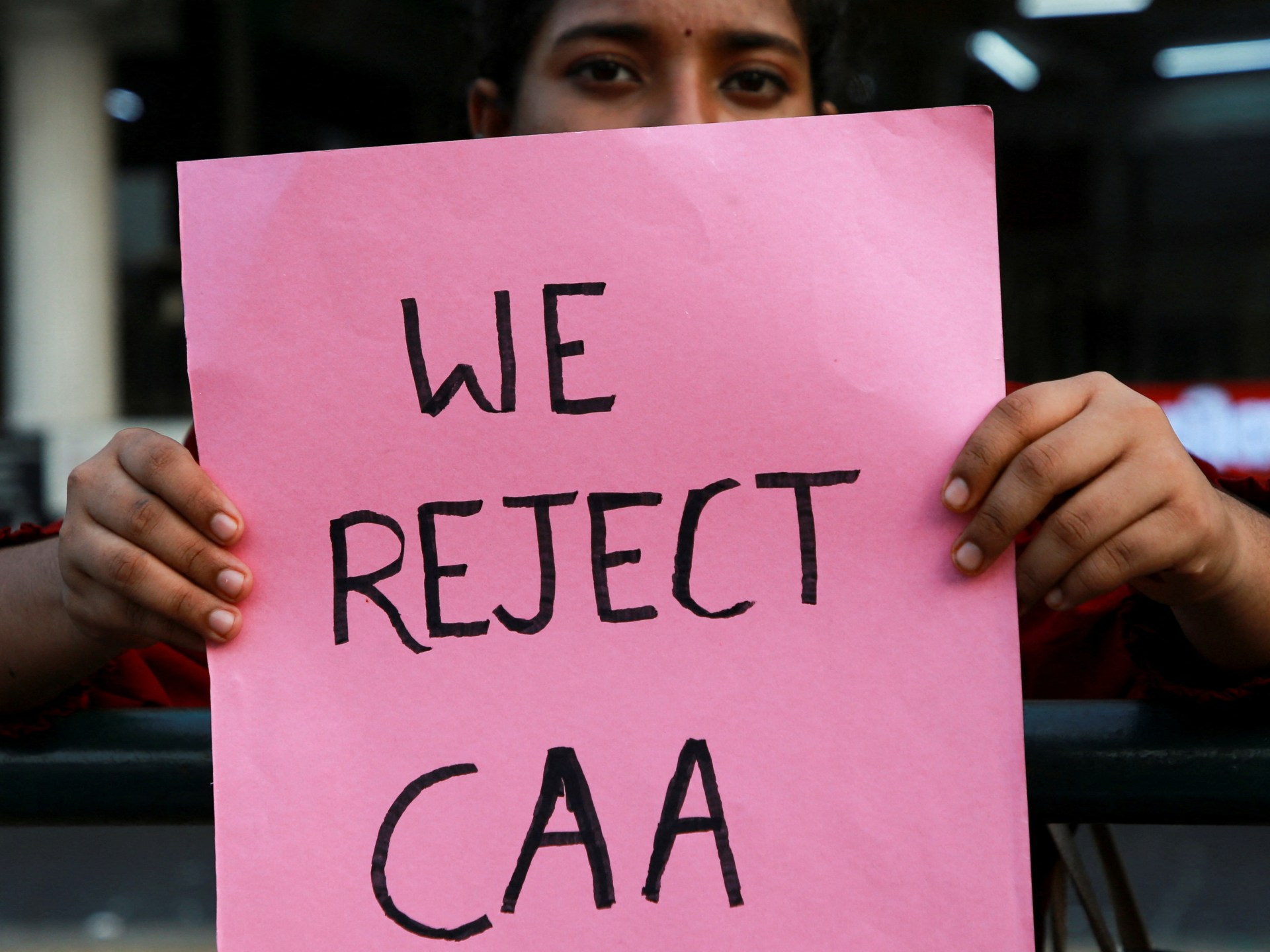‘I yearn for the girl I used to be’: Gaza women tell their stories | Israel War on Gaza
Deir el-Balah, Gaza Strip – On International Women’s Day, the women of Gaza are continuing their daily struggle to care for their children and families, and to stay alive. Four women who have been displaced by Israel’s war on Gaza since October 7, along with their families, talked to Al Jazeera about their lives now.
‘I’ve forgotten what it means to be a woman’: Nada Abdelsalam
Nada Abdelsalam, 34, sits beside her children in front of their tent, baking bread over a wood fire.
Since the onset of the war, Nada says she has lost track of the passing days, consumed by the ceaseless demands of caring for her eight children from dawn to dusk in difficult conditions.
“Women in Gaza have borne the brunt of this war. Our burdens have multiplied, and our sense of privacy has vanished,” Nada says as she tends to the fire, adding more loaves.
“Here I am, sitting on the street in a tent, deprived of life’s basic necessities. No water, no electricity, no bathrooms, no sanitation. Nothing,” she adds.
Nada was forced to flee from the Maghazi refugee camp in Gaza City to Deir el-Balah in central Gaza due to Israeli evacuation orders early in the war. Her home was bombed and destroyed.
“I came out with only the clothes I was wearing and some clothes for my children,” Nada says. “I never imagined I’d reach this point. My closet was once full of clothes.” She says she feels ashamed to go outside her tent in the shabby, worn-out clothes she is left with.
“I wear a prayer robe for everything – to sleep in, to go out,” She adds.
The war has robbed Nada of more than just her home and possessions, she says. She has lost her sense of self too.
“I’ve forgotten what it means to be a woman in this war. I feel decades older than my actual age. Even my appearance reflects it.”
Nada is one of countless women in Gaza who have been enduring similar exhaustion and heightened responsibilities during the ongoing war.
“Before the war, we bought bread from the bakery, laundered clothes with a machine and lived in clean, modern apartments,” Nada recalls. “Now, we’ve regressed to Stone Age methods, baking over open fires and handwashing laundry.
“It’s a suffering I wouldn’t wish upon any woman.”
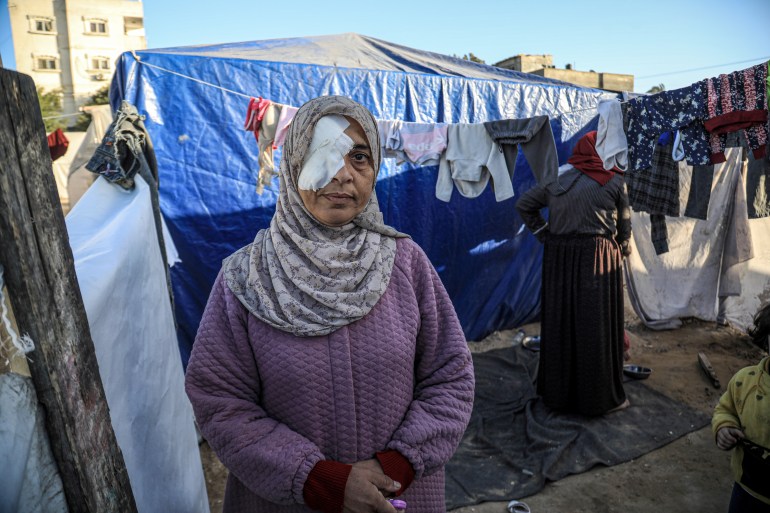
‘This war requires great strength from women’: Sawsan al-Zein
In a nearby tent, Sawsan al-Zein, 50, sits with female relatives. The mother of eight lost an eye after being seriously injured in the first week of the war when her house on Salah al-Din Street, east of Gaza City, was bombed.
“We were sitting normally that day, following the news of the war, when suddenly I found myself lying in blood,” she recounts.
“At the hospital, they told me that my eye was seriously injured, and it was removed immediately. I have one eye now, and I still need to complete my treatment abroad. My hand was injured too, and I cannot move it.”
One of her daughters and her son-in-law were killed in the bombing, after which the family fled to Deir el-Balah about five months ago.
“Losing my eye affected my psychology greatly,” Sawsan says. “Once the pillar of my household, responsible for managing everything big and small like any mother, now I struggle with basic chores. I can’t cook over an open flame or carry objects due to my injuries.”
Despite her daughter’s assistance, Sawsan mourns the impact her injuries have had on her normal life.
“Previously, my children used to love my cooking, but now, I’m restricted by my condition,” she says.
“Now I cannot, especially in these circumstances, which require great strength from mothers and women to manage their family affairs.”
Sawsan’s only wish is for the war to end soon, so she can return home to northern Gaza, even if it lies in ruins.
“Life in displacement is harsh, let alone for an injured woman like me who needs special care.” Sawsan says.
“We suffer in the simplest aspects of life. Our privacy as women is eroded. Our hearts are heavy with the loss of loved ones and fear for children. What happened to us is enough.”
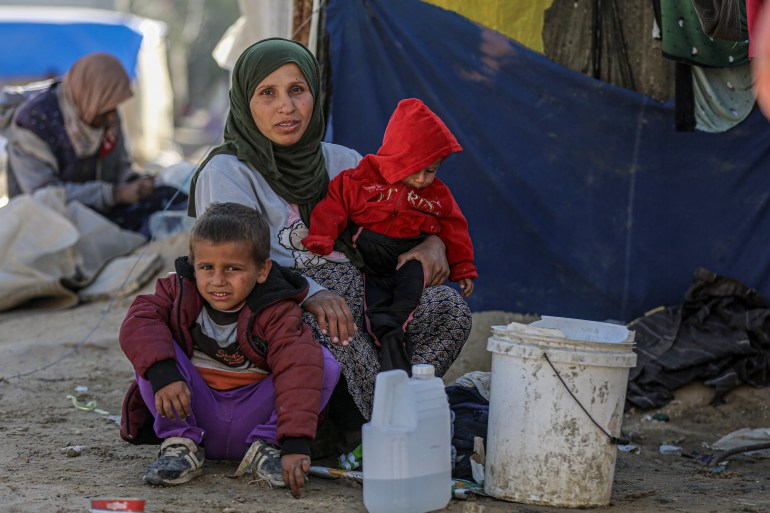
Terrified to give birth: Etemad Assaf
Etemad Assaf, 29, sits on a stone outside her tent, washing clothes by hand.
Etemad, the mother of two children who is eight months pregnant with her third, is struggling to care for her family in these circumstances. She fled from Jabalia refugee camp to Deir el-Balah and longs for the time she might be able to return home.
“The war turned our lives upside down,” she says, rubbing the clothes with her hand.
“Every night I feel like I’m going to give birth now because I’m so tired.”
“You see? Is this a suitable life for a pregnant woman? A tent, cold, open air and the lack of the basic necessities of life?”
Etemad says she is unable to provide even the basics for her children.
“My little daughter, who is 11 months old, needs diapers, and they are expensive. We can barely afford food, and sometimes there is no food to eat at all,” Etemad says.
“My big concern now is my impending birth and the dire conditions around me, particularly given what we hear about the complete collapse of hospitals in Gaza.”
“The healthcare system is crumbling. There is not even a proper place to rest after delivery.”
Etemad says she never imagined how bad things could get. “Two days ago, I looked at myself in the mirror for the first time since and was shocked by how my facial features had changed and my skin, which has darkened from sitting in the sun.”
“I used to take care of myself, moisturising my skin and hands before bed and showering was my daily routine,” Etemad recalls. “Now these are distant dreams.”
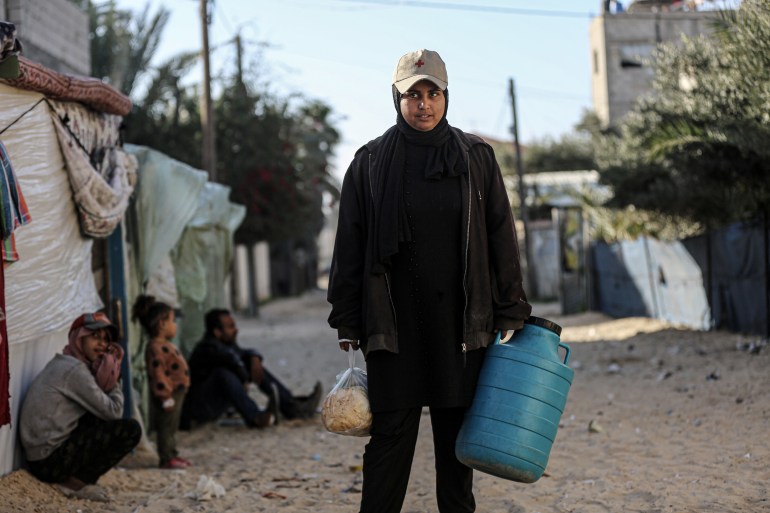
‘All my dreams have vanished’: Marah al-Qayed
Marah al-Qayed, 19, says the war has stripped away her sense of femininity and thrust her into a role she never imagined.
Carrying a heavy container of water that she fills more than once a day for her family, Marah says she feels like she has become male.
“I have completely forgotten that I am a female. I feel like I have turned into a boy,” says Marah, who was displaced with her family to a camp in Deir el-Balah from their home in the Zeitoun neighbourhood, east of Gaza City.
“I go out at dawn to stand in line in front of the bakery to bring bread to my family of nine people.” It is a similar story for all the other women and girls she knows here. “The war forced us to abandon our nature. Sometimes I go to the bread line without washing my face because of the lack of water.”
Before the war, Marah says, she was like other girls, taking care of herself and not required to do “harsh chores”.
“I brushed my teeth, groomed myself, listened to music, went to university and learned photography. Now all my dreams have vanished.
“I have become very violent, and my voice is loud.”
Despite these changes, Marah still clings to her dream of completing her studies and becoming a photographer.
“I advise girls to never give up on their dreams or their nature,” she says. “My life has been forcibly altered beyond recognition.”
“I yearn for the girl I used to be before the war.”
Check out our Latest News and Follow us at Facebook
Original Source

